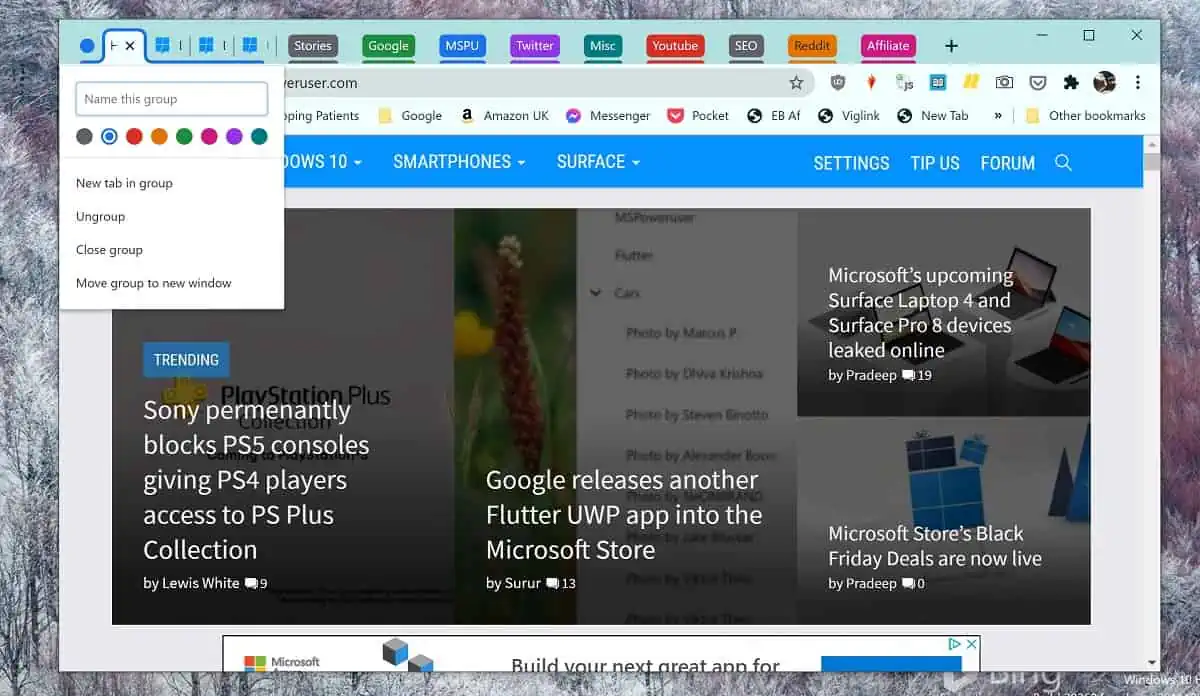Microsoft shames Apple and Google with more open app store principles
3 min. read
Published on
Read our disclosure page to find out how can you help MSPoweruser sustain the editorial team Read more

In a not-so-subtle dig at Apple and Google which are facing antitrust charges, Microsoft today announced a set of 10 principles for running its app store for Windows devices. Microsoft promised that it will allow competing app stores on the Windows platform and it will also treat its own apps to the same standards as those of from other companies. Microsoft mentioned that developers can choose their own payment systems for their apps and they can decide they want to sell within their app. Finally, Microsoft will allow any developer in its store as long as it meets objective standards and requirements, including those for security, privacy, quality, content, and digital safety.
You can read the complete list of 10 principles below:
- Developers will have the freedom to choose whether to distribute their apps for Windows through our app store. We will not block competing app stores on Windows.
- We will not block an app from Windows based on a developer’s business model or how it delivers content and services, including whether content is installed on a device or streamed from the cloud.
- We will not block an app from Windows based on a developer’s choice of which payment system to use for processing purchases made in its app.
- We will give developers timely access to information about the interoperability interfaces we use on Windows, as set forth in our Interoperability Principles.
- Every developer will have access to our app store as long as it meets objective standards and requirements, including those for security, privacy, quality, content and digital safety.
- Our app store will charge reasonable fees that reflect the competition we face from other app stores on Windows and will not force a developer to sell within its app anything it doesn’t want to sell.
- Our app store will not prevent developers from communicating directly with their users through their apps for legitimate business purposes.
- Our app store will hold our own apps to the same standards to which it holds competing apps.
- Microsoft will not use any non-public information or data from its app store about a developer’s app to compete with it.
- Our app store will be transparent about its rules and policies and opportunities for promotion and marketing, apply these consistently and objectively, provide notice of changes and make available a fair process to resolve disputes.
Microsoft finally mentioned that it will review these principles from time to time to determine whether it should add to or change them to reflect feedback as well as technology, business or regulatory developments.
“By embracing these principles, Microsoft will help create a level playing field for developers both large and small, provide consumers with greater choice, and hopefully encourage other platforms to do the same,” Spotify spokesman said in a statement supporting Microsoft’s policies around Microsoft Store.
“It’s wonderful to see Microsoft formally codify its long-held principles in Windows as an open platform and fair market for all developers and consumers,” Tim Sweeney, CEO and founder of Epic said in a statement.
Microsoft also mentioned that these principles are not applicable for Xbox Store because of the following reasons:
Console makers like Microsoft invest significantly in developing dedicated console hardware but sell them below cost or at very low margins to create a market that game developers and publishers can benefit from. Given these fundamental differences in the significance of the platform and the business model, we have more work to do to establish the right set of principles for game consoles.
Source: Microsoft









User forum
0 messages